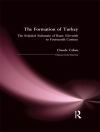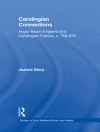Beyond nostalgic tea industry ads romanticizing colonial Ceylon and the impoverished conditions that beleaguer Tamil tea workers are the stories of the women, men, and children who have built their families and lives in line houses on tea plantations since the nineteenth century. The tea industry’s economic crisis and Sri Lanka’s twenty-six year long civil war have ushered in changes to life and work on the plantations, where family members now migrate from plucking tea to performing domestic work in the capital city of Colombo or farther afield in the Middle East. Using feminist ethnographic methods in research that spans the transitional time between 2008 and 2017, Mythri Jegathesan presents the lived experience of these women and men working in agricultural, migrant, and intimate labor sectors.
In Tea and Solidarity, Jegathesan seeks to expand anthropological understandings of dispossession, drawing attention to the political significance of gender as a key feature in investment and place making in Sri Lanka specifically, and South Asia more broadly. This vivid and engaging ethnography sheds light on an otherwise marginalized and often invisible minority whose labor and collective heritage of dispossession as “coolies” in colonial Ceylon are central to Sri Lanka’s global recognition, economic growth, and history as a postcolonial nation.
Mengenai Pengarang
Piya Chatterjee is professor of feminist, gender, and sexuality studies at Scripps College. She is the author of A Time for Tea: Women, Labor and Post/Colonial Politics on an Indian Plantation (Duke, 2001); and coeditor of The Imperial University: Academic Repression and Scholarly Dissent (Minnesota, 2014) and States of Trauma: Gender and Violence in South Asia (New Delhi: Zubaan Press, 2009).












